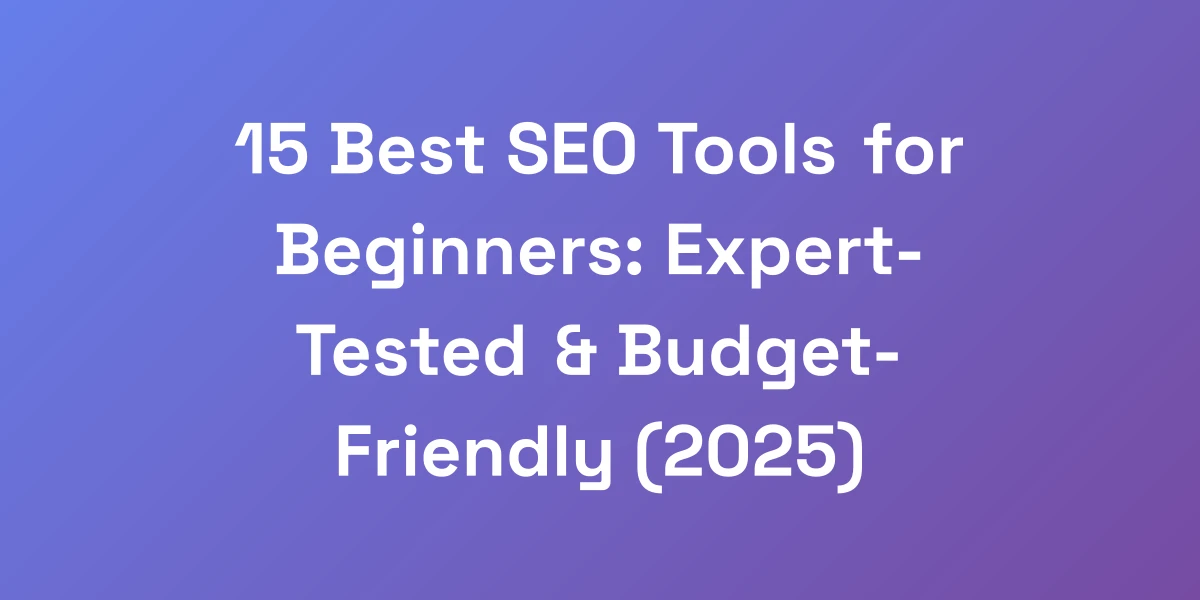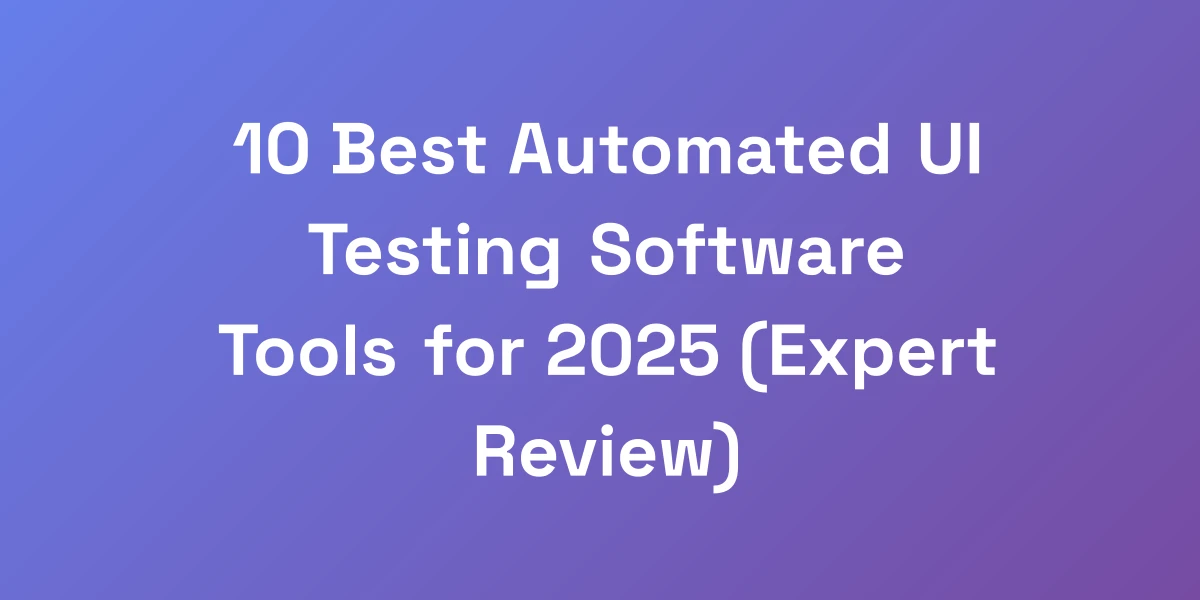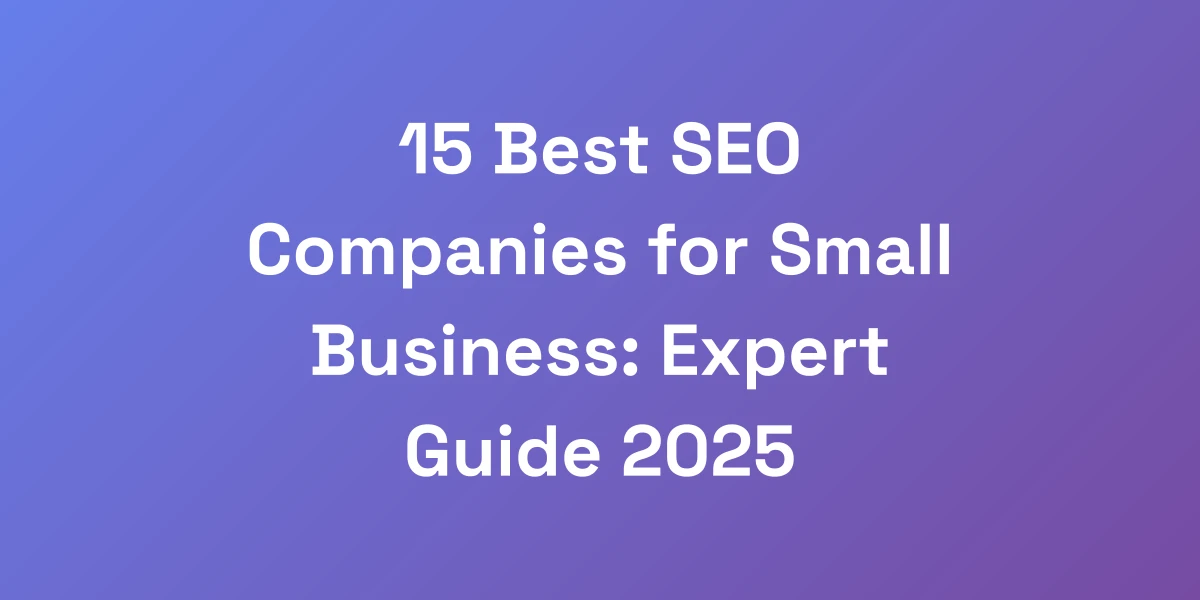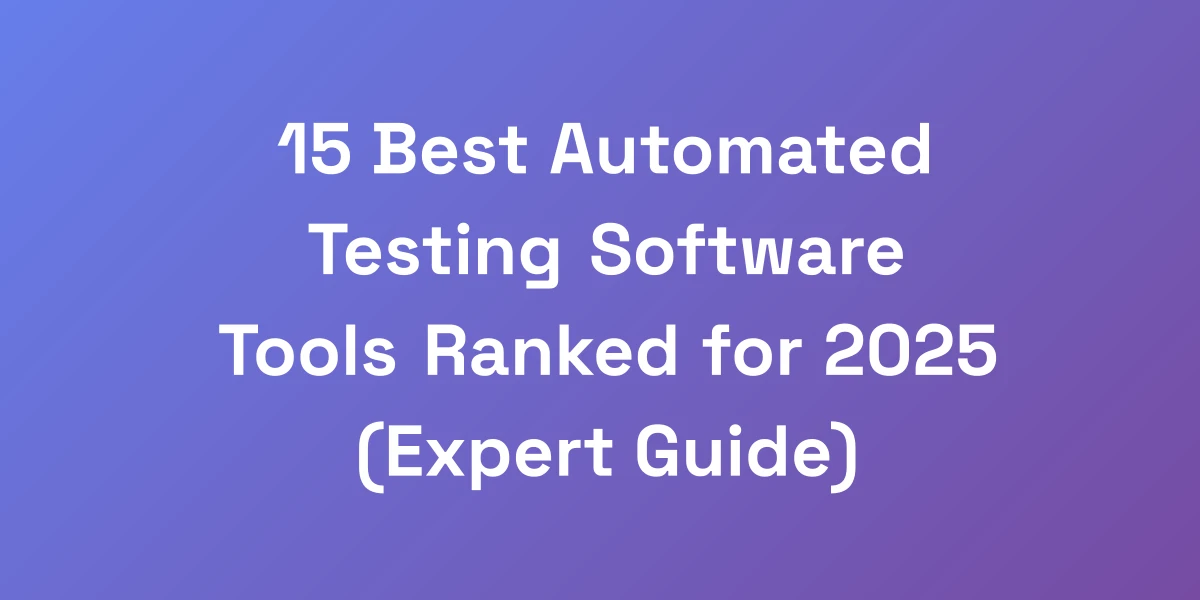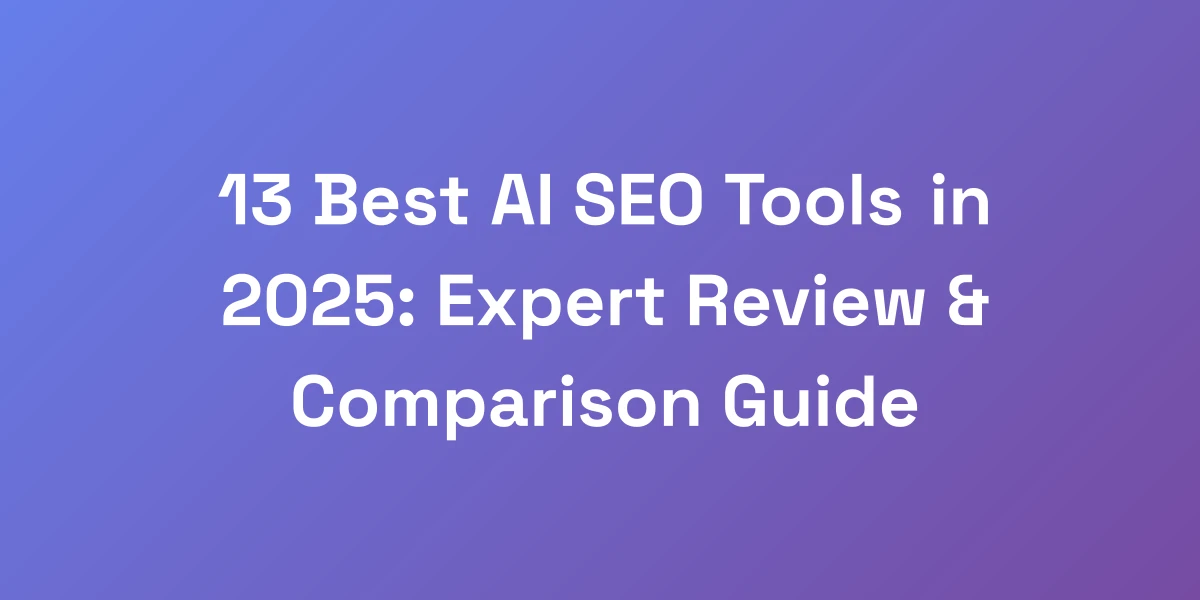
13 Best AI SEO Tools in 2025: Expert Review & Comparison Guide
Feb 18, 2025 | By [email protected]
Understanding AI SEO Tools: A 2025 Perspective
Let’s face it—SEO is not what it used to be. Gone are the days when merely stuffing keywords into your content could boost your rankings. In 2025, AI SEO tools have become indispensable assets for digital marketers striving to stay ahead of the curve. These sophisticated platforms leverage *machine learning* and *natural language processing* to automate and optimize every corner of your SEO strategy.
From content creation to keyword research and technical optimization, AI is revolutionizing how we approach search engine optimization. It’ll take you on a whirlwind tour of the most powerful AI SEO tools that are reshaping the industry. We’ll cover what makes these tools effective, the key features to look out for, and their ROI potential. Whether you’re a seasoned marketer or a curious newcomer, there’s something here for you.
So buckle up as we dive deep into the world of AI SEO tools, one indispensable platform at a time.
What Makes an AI SEO Tool Effective?
The effectiveness of an AI SEO tool often lies in its ability to integrate machine learning algorithms to adapt and learn from data over time. These tools can analyze search patterns, predict shifts, and offer optimizations that are both timely and precise.
Consider the predictive analytics capabilities of today’s AI tools, which can identify trends before they become mainstream. This foresight allows businesses to craft content that captures early interest and maximizes traffic.
- Real-time Learning: Adjusts to algorithm updates seamlessly.
- Data-Driven Insights: Offers actionable insights from vast datasets.
- User Behavior Analysis: Maps user intent effectively to refine strategies.
By embodying these characteristics, AI SEO tools provide a robust foundation for any competitive SEO strategy.
Key Features to Look for in 2025
As we navigate 2025, it’s crucial to know the essential features that make an AI SEO tool stand out. These features not only streamline your workflow but also enhance the precision of your strategy.
- Natural Language Processing (NLP): Enhances understanding of user queries and content relevance.
- Automated Content Suggestions: Provides relevant topic ideas based on current trends.
- Competitive Analysis: Offers insights into competitors’ strategies and performance.
- Integration Capabilities: Ensures seamless functionality with your existing tech stack.
These features work together to ensure that your SEO strategy remains ahead of the competition.
The Evolution of AI in SEO
The evolution of AI in SEO has been marked by rapid advancements and increasing sophistication. Initially focused on automating repetitive tasks, AI now plays a pivotal role in strategic decision-making.
For instance, AI’s ability to simulate user behavior has transformed how websites are designed and optimized. The use of AI for technical site audits allows for faster and more accurate identification of issues, enhancing site performance.
As AI continues to evolve, its integration into SEO strategies will only become more critical, offering even more innovative ways to enhance visibility and engagement.
ROI and Performance Metrics
One of the compelling advantages of using AI SEO tools is the significant improvement in ROI. Businesses report a 49.2% improvement in SEO rankings after embracing AI tools, with companies experiencing a 30% improvement in rankings within six months.
These metrics underscore the efficacy of AI in not just maintaining but improving search visibility even amid frequent algorithm updates. Furthermore, AI-generated content now accounts for 13.08% of top-performing Google content, demonstrating its growing impact. For more insights on AI content performance, check out this AI content performance analysis.
For those aiming to maximize ROI, investing in AI SEO tools offers promising returns. Additionally, consider exploring the auto SEO revolution to further enhance your strategy.
Integration Capabilities
Integration capabilities are a crucial factor when selecting an AI SEO tool. These tools must seamlessly integrate with Content Management Systems (CMS), analytics platforms, and other marketing technologies to ensure a smooth workflow.
- CMS Integration: Streamlines content publication and management.
- Analytics Integration: Provides comprehensive performance tracking.
- Marketing Stack Compatibility: Ensures cohesive strategy execution across platforms.
Good integration keeps the wheels turning without disrupting your existing processes, making it an essential feature for any AI SEO tool.
Top-Tier AI SEO Platforms for Content Optimization
Content optimization is at the heart of effective SEO strategies, and modern AI tools have significantly amplified this process. The top platforms in 2025 offer advanced content analysis, *SERP feature optimization*, and *real-time recommendations* based on competitor analysis.
These tools can analyze top-ranking content, identify gaps in your strategy, and suggest improvements that align with search engine algorithms. Let’s explore some of these leading platforms and how they compare.
SEMrush’s AI Writing Assistant
SEMrush‘s AI Writing Assistant is a powerful tool for enhancing content quality and relevance. It provides real-time suggestions to improve readability, tone, and SEO potential based on existing top-performing content.
- Content Scoring: Evaluates content for SEO effectiveness and readability.
- SEO Recommendations: Offers keyword suggestions and optimization tips.
- Plagiarism Check: Ensures content originality and credibility.
With its comprehensive suite of features, SEMrush’s AI Writing Assistant is a valuable asset for creating high-quality, SEO-friendly content.
Frase.io’s Content Optimization
Frase.io excels in content optimization by offering insights into how content can be tailored to better match user intent and search queries. It leverages AI to analyze and improve content based on a variety of metrics.
- Content Briefs: Generates structured outlines based on top-ranking articles.
- AI Content Scoring: Provides a score to gauge content optimization level.
- Question-Based Analysis: Identifies popular queries related to your topic.
This tool is ideal for creating content that not only ranks well but also fully satisfies user intent.
SurferSEO’s AI Capabilities
SurferSEO stands out with its ability to align content with the latest SERP analysis. It uses AI to deliver data-driven recommendations that enhance on-page SEO.
- Keyword Density Analysis: Optimizes keyword usage without overstuffing.
- Content Structure Recommendations: Suggests ideal length, headers, and layout.
- Real-Time Optimization: Updates on the fly as you write or edit content.
SurferSEO is a robust platform for those eager to fine-tune their content for search engines.
MarketMuse’s AI Analysis
MarketMuse offers a unique approach by using AI to prioritize content topics and strategies. Its analysis helps determine which content will yield the best ROI based on market demand and competition.
- Content Inventory: Evaluates existing content for gaps and opportunities.
- Topic Modeling: Identifies related topics for comprehensive content coverage.
- Performance Forecasting: Predicts content impact before publication.
MarketMuse helps businesses strategize their content creation efforts to align with market needs effectively.
Clearscope’s Content Grade
Clearscope focuses on providing an in-depth content grade that assesses how well your content aligns with top-performing articles. Its recommendations refine content to boost both relevance and performance.
- Content Grading: Assesses and grades content quality and relevance.
- Keyword Insights: Provides semantic keyword suggestions for richer content.
- Competitive Analysis: Benchmarks content against high-ranking competitors.
Clearscope’s detailed content grading can be a game-changer for optimizing organic search performance.
Comparison of Features and Pricing
Choosing the right AI SEO tool often depends on balancing features with budgetary constraints. Here’s a quick comparison of the mentioned tools:
- SEMrush + ContentShake: Starting at $119.95/month, known for comprehensive SEO and content features.
- Surfer SEO: Starting at $49/month, excels in real-time content optimization.
- Frase: Starting at $14.99/month, ideal for intent-driven content creation.
- MarketMuse: Offers robust content strategy insights with varied pricing tiers.
- Clearscope: Focuses on content grading with competitive pricing.
These tools provide diverse functionalities, so choose based on the specific needs and budget of your project.
AI-Powered Keyword Research and Analysis Tools
Keyword research has evolved past the days of simple search volume metrics. In 2025, AI-driven tools offer predictive analytics, *user intent mapping*, and *semantic relationship analysis*, revealing keyword opportunities that traditional methods overlook.
By integrating AI, keyword research becomes a more strategic endeavor, deeply aligned with actual user behavior and search intent. Let’s explore some of the cutting-edge tools transforming keyword research today.
Advanced Keyword Discovery Methods
Today’s AI tools employ advanced discovery techniques, enabling marketers to uncover emerging keywords and topics with precision.
- Semantic Analysis: Discovers keywords through contextual relationships.
- Long-Tail Keyword Identification: Targets niche opportunities for higher engagement.
- Competitor Keyword Insights: Analyzes competitor keywords to identify gaps.
These methods ensure a comprehensive understanding of keyword landscapes, aiding in competitive content strategies.
Intent Classification Systems
AI tools excel in mapping user intent, allowing marketers to create content that aligns closely with user expectations.
- Intent Analysis: Categorizes queries based on informational, navigational, or transactional intent.
- Behavioral Insights: Provides data on user journey and interaction points.
- Query Refinement: Suggests modifications to better match user intent.
Intent classification ensures that content meets the precise needs of its audience, improving relevance and engagement.
Competitive Keyword Gap Analysis
Staying ahead of the competition requires a deep understanding of the keywords they target. AI tools simplify this with robust gap analysis features.
- Comprehensive Audit: Identifies areas where competitors outperform.
- Opportunity Identification: Spotlights unexploited keyword spaces.
- Performance Benchmarking: Evaluates your keyword usage against industry benchmarks.
This analysis helps pinpoint opportunities to outperform competitors strategically.
Trend Prediction Capabilities
AI tools provide insights into emerging trends, allowing companies to stay ahead of the curve.
- Predictive Analytics: Anticipates shifts in search behavior and trends.
- Historical Data Analysis: Uses past data to forecast future trends.
- Seasonal Keyword Planning: Aligns content strategies with upcoming trends.
These capabilities ensure content remains relevant and timely, maximizing engagement and visibility.
ROI Tracking for Keywords
Tracking the ROI of your keyword strategies is essential for ongoing optimization. AI tools offer detailed metrics to evaluate performance.
- Conversion Tracking: Links keywords to specific conversion metrics.
- Traffic Attribution: Analyzes keyword impact on traffic and engagement.
- Revenue Correlation: Connects keyword strategies with revenue outcomes.
With these insights, businesses can refine their keyword strategy for maximum financial impact.
Technical SEO Automation with AI
The technical aspect of SEO has become increasingly complex, making AI automation invaluable. Modern AI tools excel at identifying technical issues, performing *automated audits*, and providing *smart recommendations* for site optimization.
These platforms can analyze millions of data points in seconds, detecting patterns and issues that would take humans hours or days to uncover. Let’s delve into how AI is transforming technical SEO.
Automated Site Auditing
AI-driven site audits are thorough, efficient, and remarkably accurate. These tools identify potential issues that could impede site performance.
- Error Detection: Pinpoints errors in coding, structure, and content.
- SEO Health Checks: Evaluates overall site SEO performance.
- Actionable Recommendations: Provides clear steps for issue resolution.
Automated site audits ensure that technical issues are addressed promptly, maintaining optimal site performance.
Schema Markup Generation
Schema markup enhances how search engines interpret your site’s content. AI tools offer automated solutions for implementing schema efficiently.
- Structured Data Creation: Automates schema generation for various content types.
- Rich Snippet Optimization: Increases visibility in search results with rich data.
- Validation Tools: Ensures markup correctness and functionality.
Implementing schema markup can significantly improve how search engines display your content, increasing visibility and engagement.
Mobile Optimization Tools
In a mobile-first world, ensuring your site performs well on all devices is critical. AI tools streamline mobile optimization tasks. For tips on optimizing your website for mobile users, visit this mobile optimization guide.
- Responsive Design Checks: Ensures design adapts to various screen sizes.
- Image Optimization: Compresses and resizes images for faster load times.
- Performance Testing: Evaluates mobile load speed and responsiveness.
These features guarantee a seamless user experience across devices, critical for both user engagement and SEO.
Core Web Vitals Analysis
AI tools provide in-depth analysis and recommendations for improving core web vitals, crucial for modern SEO success.
- Load Performance Tracking: Monitors LCP, FID, and CLS metrics.
- Optimization Suggestions: Provides actionable steps to enhance web vitals.
- Real-Time Monitoring: Offers continuous oversight of core web vitals.
Improving these metrics is essential for a high-performing, search-friendly website.
Security and Performance Monitoring
AI tools play a vital role in maintaining site security and performance through continuous monitoring and alerts.
- Threat Detection: Identifies potential security vulnerabilities.
- Performance Alerts: Notifies of unusual activity affecting site speed.
- Regular Updates: Ensures tools and protocols remain current and effective.
These capabilities help maintain a secure and efficient website, crucial for user trust and SEO stability.
Future Trends and Emerging AI SEO Technologies
The future of AI in SEO looks incredibly promising with emerging technologies set to transform the landscape further. From predictive analytics to *voice search optimization* and *automated content generation*, new innovations are constantly being developed. For insights into voice search trends and statistics, check out this voice search trends article.
Understanding these trends is crucial for staying ahead in the competitive digital marketing space. Let’s delve into the emerging AI technologies set to revolutionize SEO.
Predictive SEO Analytics
Predictive analytics in SEO involves using AI to foresee changes in search trends, allowing businesses to adjust strategies proactively.
- Search Trend Forecasting: Anticipates shifts in user search behavior.
- Content Demand Prediction: Gauges future content needs based on trends.
- Competitive Edge: Stays ahead of competitors by identifying upcoming trends.
By leveraging predictive analytics, marketers can remain one step ahead in a rapidly changing search landscape.
Voice Search Optimization
With over 50% of adults using voice search daily, optimizing for this medium is essential. AI tools facilitate efficient voice search optimization.
- Snippet Optimization: Focuses on achieving featured snippet results.
- Conversational Content Creation: Adapts content for natural language queries.
- Quick Load Time: Ensures content is accessible and fast-loading.
Voice search optimization will be a game-changer as more users rely on voice-activated devices.
AI-Generated Content Evolution
AI-generated content is becoming more prevalent, with tools capable of creating high-quality, SEO-optimized material. For a comprehensive overview of AI SEO statistics, visit this AI SEO statistics article.
- Content Personalization: Tailors content to specific audience segments.
- Automated Content Generation: Produces content efficiently without sacrificing quality.
- Enhanced User Engagement: Drives interaction through relevant, dynamic content.
As AI continues to evolve, its ability to generate content that meets user needs will only improve.
Machine Learning Applications
Machine learning is at the heart of AI SEO tools, driving insights and optimizations through continuous learning.
- Behavioral Analysis: Adapts to user behavior patterns and preferences.
- Algorithm Adjustments: Updates strategies in response to algorithm changes.
- Content Recommendations: Suggests enhancements based on historical data.
These applications ensure that SEO strategies remain agile and effective in a competitive landscape.
Integration with Other Marketing Tools
Integrating AI SEO tools with other marketing technologies is crucial for a cohesive strategy.
- CRM Integration: Aligns SEO data with customer relationship management systems.
- Analytics Platforms: Provides holistic insights through integrated reporting.
- Marketing Automation: Enhances efficiency through synchronized marketing efforts.
These integrations allow marketers to execute more strategic and effective digital campaigns.
Conclusion
As we look toward the future, it’s clear that AI-powered SEO tools are more than just a trend—they’re a necessity. By automating complex processes, providing deep insights, and adapting to user behaviors, these tools are reshaping the SEO landscape.
From AI-driven content optimization to advanced keyword research, the opportunities are vast for those ready to embrace AI. We encourage you to explore these tools and apply their robust features to your strategy.
If you’re ready to take your SEO game to the next level, now’s the time to act. Try out these tools, experiment with their features, and watch your search engine rankings soar. Let’s continue the conversation—share your thoughts on AI SEO tools or ask questions in the comments below!
![10 Best Database Comparison Tools Ranked for 2025 [Expert Guide]](https://autoseo.eazyseo.co/wp-content/uploads/2025/04/10-Best-Database-Comparison-Tools-Ranked-for-2025-.webp)

